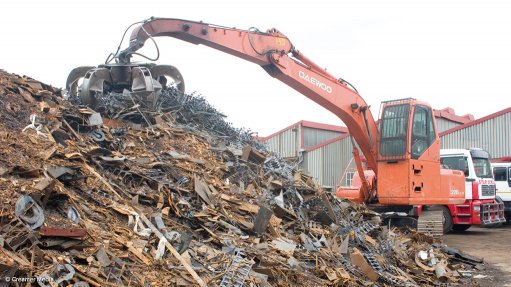Cova advises on the work needed by SA firms to benefit from the AfCFTA.
This article has been supplied as a media statement and is not written by Creamer Media. It may be available only for a limited time on this website.
Analysis will ensure companies are not late to African free trade party
Were it not for the Covid-19 crisis we would undoubtedly have seen a lot more fuss being made about the January 1 launch of the African Continental Free Trade Area (AfCFTA).
However, despite delays and the expected confused and confusing small print, it has happened. Well, some of it. There is still secrecy about many of the details, including exactly which initial offers have been made by participating governments to bring down tariffs — but there is movement.
This easing of tariffs is a work in progress. Free trade may be the lofty ambition, but for now a lot more negotiation is needed on the speed and scale of tariff dismantlement.
The initial result of the AfCFTA will be lower tariffs both on the range of the goods we export but also on an array of imports. So, in the absence of a big bang, shall we just wait for it all to be completed? Well, no. That would not be wise. As tariffs are reduced it will be easier for SA businesses to compete in African markets, and this needs analysis.
It is important to remember that each product imported or exported needs to be classified in terms of what is termed a harmonised system. This means companies need to understand what their tariff headings — the categorisations that will determine the tariffs a product will attract — are for each and every product they import or export.
Do no analysis and you may find yourself joining the party too late. However, when I talk about this to SA firms many are not doing enough. SA firms should establish what is happening under AfCFTA, what tariff cuts have already been made, and which further easing of restrictions are looming and when, as the ratcheting-down process continues.
Though there is not yet total clarity, as the mists lift there is a lot to watch out for. Your elsewhere-in-Africa competitor could soon enjoy a 20% cut in tariffs when it sends goods to the market. As a local manufacturer in SA offering similar goods in the same market, are you still competitive or do you need to address your costs, or change your product range or design?
You will also need a map. SA is already a member of the Southern African Customs Union and the larger and overlapping Southern African Development Community (Sadc). We already enjoy free trade arrangements with our partners in these blocs, though there are exceptions, so the main tariff changes that affect SA businesses will involve those countries in the rest of Africa.
There are a lot of them, and some — such as Egypt, Morocco and Nigeria — have impressive industrial bases. There are things they make better and more cheaply than we do, so they are also African rivals. Should you be looking to set up regional chains across Africa to leverage each country’s competitive advantage? Have you thought about changing your sourcing model to a more regional African one since Covid?
When you assess your competitiveness it should not be at a country-to-country level but at the level of your industry as the world of tariffs involves hundreds of individual, line-by-line categories of goods.
The tariff phase-down process is not static, and if all goes to plan it will take place over a decade. Even if this year’s tariff cuts are few, it will all change a lot over the next few years. You need to know what is happening and when, and what you need to do about it.
Of course, this is not a one-way issue. While SA producers may face stiffer competition domestically as our tariffs reduce, our partners in AfCFTA are also obliged to bring down their tariffs. This should make our exports more competitive, and the markets north of the SADC more alluring. Have you assessed the market opportunities all of this might bring your products? Do you understand the current customs duty barriers in your chosen African target market, and what and when the phase-down will give SA-made products an advantage?
As with tariffs, the entirety of the AfCFTA project is a work in progress. Opening markets to more and freer trade — a clearly-stated objective that is supported by all African governments — involves more than the elimination of formal tariff barriers. There also has to be continuous work on tackling and trimming all the red tape covering the movement of goods, opening up of borders, harmonising standards and other potential non-tariff barriers.
While a Utopian free trade area requires the free movement of goods, we have a long way to go on this. It is vital to understand what the AfCFTA might bring for specific products. Analyse the opportunities now.
Cova Advisory
Comments
Press Office
Announcements
What's On
Subscribe to improve your user experience...
Option 1 (equivalent of R125 a month):
Receive a weekly copy of Creamer Media's Engineering News & Mining Weekly magazine
(print copy for those in South Africa and e-magazine for those outside of South Africa)
Receive daily email newsletters
Access to full search results
Access archive of magazine back copies
Access to Projects in Progress
Access to ONE Research Report of your choice in PDF format
Option 2 (equivalent of R375 a month):
All benefits from Option 1
PLUS
Access to Creamer Media's Research Channel Africa for ALL Research Reports, in PDF format, on various industrial and mining sectors
including Electricity; Water; Energy Transition; Hydrogen; Roads, Rail and Ports; Coal; Gold; Platinum; Battery Metals; etc.
Already a subscriber?
Forgotten your password?
Receive weekly copy of Creamer Media's Engineering News & Mining Weekly magazine (print copy for those in South Africa and e-magazine for those outside of South Africa)
➕
Recieve daily email newsletters
➕
Access to full search results
➕
Access archive of magazine back copies
➕
Access to Projects in Progress
➕
Access to ONE Research Report of your choice in PDF format
RESEARCH CHANNEL AFRICA
R4500 (equivalent of R375 a month)
SUBSCRIBEAll benefits from Option 1
➕
Access to Creamer Media's Research Channel Africa for ALL Research Reports on various industrial and mining sectors, in PDF format, including on:
Electricity
➕
Water
➕
Energy Transition
➕
Hydrogen
➕
Roads, Rail and Ports
➕
Coal
➕
Gold
➕
Platinum
➕
Battery Metals
➕
etc.
Receive all benefits from Option 1 or Option 2 delivered to numerous people at your company
➕
Multiple User names and Passwords for simultaneous log-ins
➕
Intranet integration access to all in your organisation


















